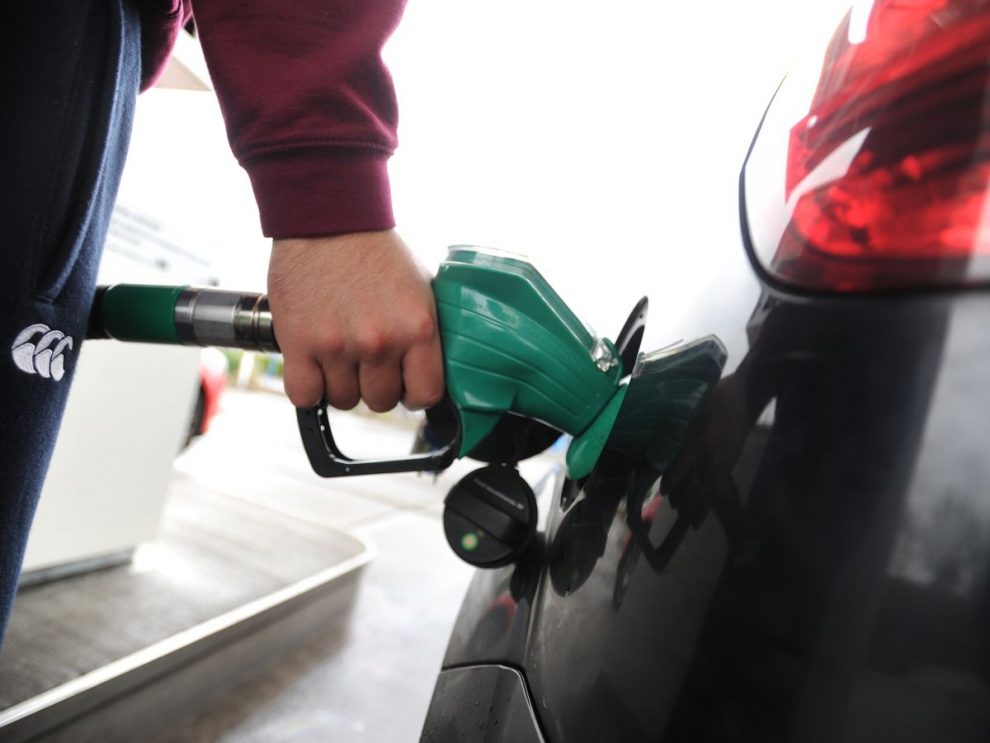DARREN BRIGGS, the Managing Director of Ascona Group has today taken to social media to express his personal views to the recent rise in oil prices.
Darren founded Ascona Group in 2011 in Pembrokeshire. He began his career in the industry with roles at Elf Oil UK Limited and Total UK Limited, before founding BigOil.net in2004, which he sold to the PRA in 2008. He is probably the best person in Wales to ask about fuel prices.

My personal response and views to rising fuel prices
The heightened geo-political tensions resulting from Russia’s invasion of Ukraine, and the package of economic sanctions imposed by the West in response, mean that we are seeing unprecedented increases in prices for crude oil and of course refined petroleum products (petrol, diesel and the like).
Russia is the second biggest oil producer in the world and the third biggest producer in terms of refined products. Almost 20% of the UK’s diesel is imported from Russia*
The question I get asked a lot is “why the big difference of fuel pricing between your sites and the supermarkets?”
The honest answer is that, ultimately, we will always attempt to be as competitive as commercially possible and sometimes we will retail fuel at zero or very little profit margin to remain competitive in a particularly price sensitive area. The Pembroke Dock and Pembroke area is a prime example (with competition from both Asda and Tesco). Note – Asda is an unmanned site, therefore no staffing costs!
Unfortunately for an independent business like Ascona, the supermarkets have an unfair commercial advantage.
Having worked in this sector for over 25 years, (I now feel old!) here is my insider knowledge:
The supermarkets buy their petrol and diesel on a previous (up to) a 3 weekly ‘lag’. What does this mean?
In simple terms, the fuel they sell today is based on the cost price 3 weeks ago. So when the cost prices sky rocket (as they have in the last 2 weeks), the supermarkets are still buying fuel at a substantially lower price than independent fuel retailers.
So how do independent fuel retailers buy petrol and diesel?
Most fuel supply contracts in the independent market usually last for between 3 or 5 years, and are linked to the Platts commodity price assessment for North West Europe (refined products for petrol and diesel). These products are traded in $ per tonne and then converted into pence per litre using density factors and the exchange rate between sterling and the dollar. There are other elements such as bio fuels, ethanol and others, but let’s try and keep this as simple as possible!
Is there a big pricing lag for independent retailers?
Sadly, no! We do not enjoy a 3 weekly lag that supermarkets do. However, we do have the choice between a weekly lag or a previous day market on close price.
In a very volatile market (like now) the weekly lag offers some protection or comfort in a rapidly increasing market, but if any particular forecourt or business has a high volume of sales, this is short lived.
When prices are volatile and increasing on a daily basis, having fuel delivered from your supplying oil company based on a previous day market on close price means that it is extremely difficult to remain competitive. In fact, it is impossible. If you take the average of last weeks prices, petrol and diesel have risen by over 7 and 12 pence per litre respectively. A forecourt operating on a previous day price would have to pass on these huge cost increases immediately. Not doing so would be commercial suicide, but this leads to big price differences at the pole sign!
It should be noted that all Shell branded dealer sites across the UK operate on a previous day market on close price. I estimate over a third of dealers operate on a previous day market on close price.
Ultimately, ours is a very tough industry to be in. Forecourts have to rely on retail shop sales and other associated retail services to remain competitive and to make a net profit.
Taking into account the increases in energy costs and minimum wage increases this year, the average petrol forecourt in the UK costs over £20,000 a month to run. Fuel volumes are still around 90% of pre-covid levels and fuel margins remain between 5 and 9 pence per litre depending on price sensitivity of the local area, since Covid.
However, the fuel margins in the coming weeks will inevitably reduce as we try and remain as competitive as possible within the UK retail fuel market. There will be significant price differences in pole sign prices.
I will leave you with a final thought …
Whilst the mainstream media is bemoaning fuel retailers for increasing prices at the pole signs, international wholesale markets are in fact driving global change for reasons identified at the beginning of my post.
The UK, in fact, probably has cheapest petrol and diesel in Europe when you deduct motor fuel duty and VAT. But of course someone has to pay for furlough?
*source – Goldman Sachs strategic review February 2022.

















